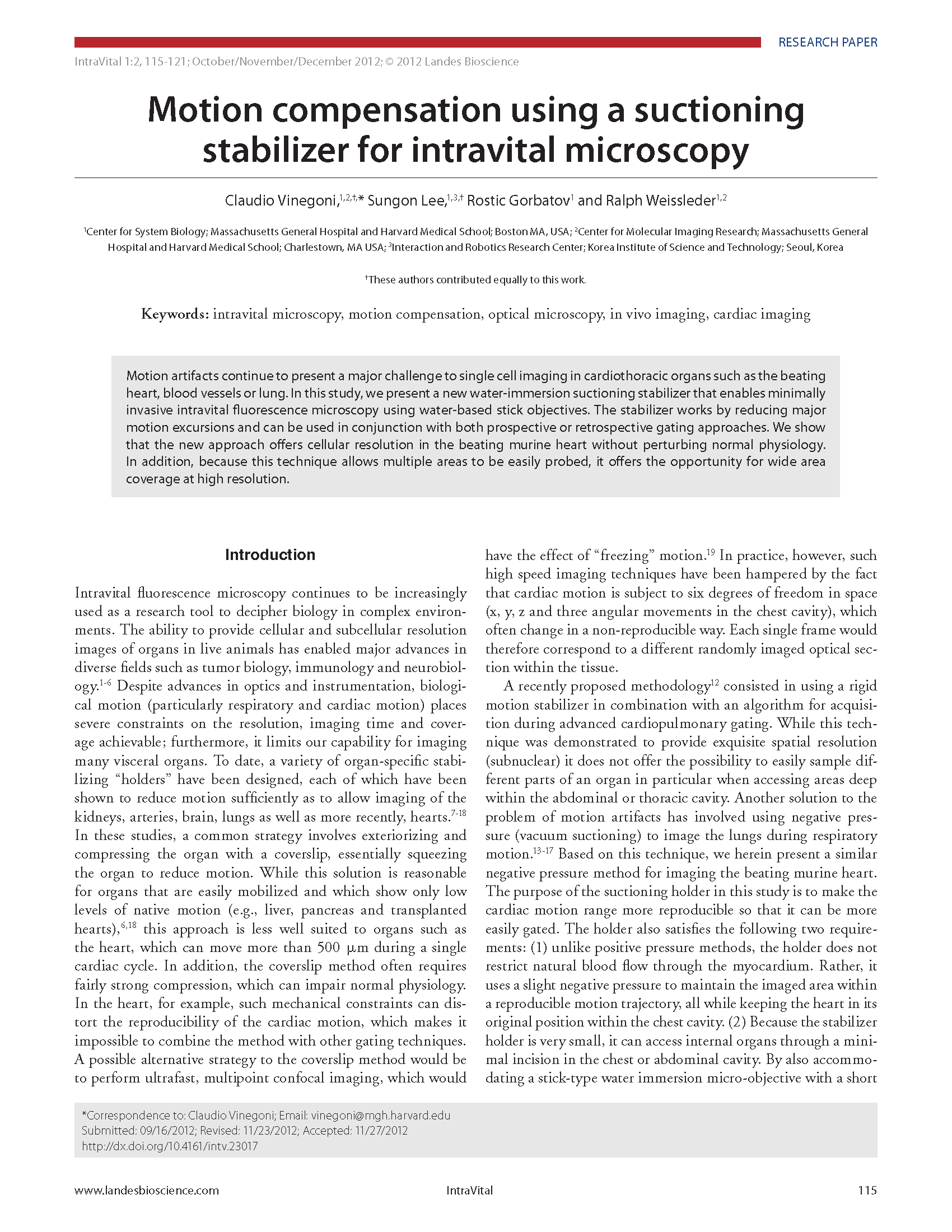Motion compensation using a suctioning stabilizer for intravital microscopy
Intravital
Abstract
"Motion artifacts continue to present a major challenge to single cell imaging in cardiothoracic organs such as the beating
heart, blood vessels or lung. In this study, we present a new water-immersion suctioning stabilizer that enables minimally
invasive intravital fluorescence microscopy using water-based stick objectives. The stabilizer works by reducing major
motion excursions and can be used in conjunction with both prospective or retrospective gating approaches. We show
that the new approach offers cellular resolution in the beating murine heart without perturbing normal physiology.
In addition, because this technique allows multiple areas to be easily probed, it offers the opportunity for wide area
coverage at high resolution."
Full citation
For attribution in academic contexts, please cite this work as:
| Vinegoni#†, C., Lee†, S., Gorbatov, R., & Weissleder, R. (2012). Motion compensation using a suctioning stabilizer for intravital microscopy. Intravital, 1, 115. https://doi.org/10.4161/intv.23017 |

Vinegoni#†, C., Lee†, S., Gorbatov, R., & Weissleder, R. (2012). Motion compensation using a suctioning stabilizer for intravital microscopy. Intravital, 1, 115. https://doi.org/10.4161/intv.23017